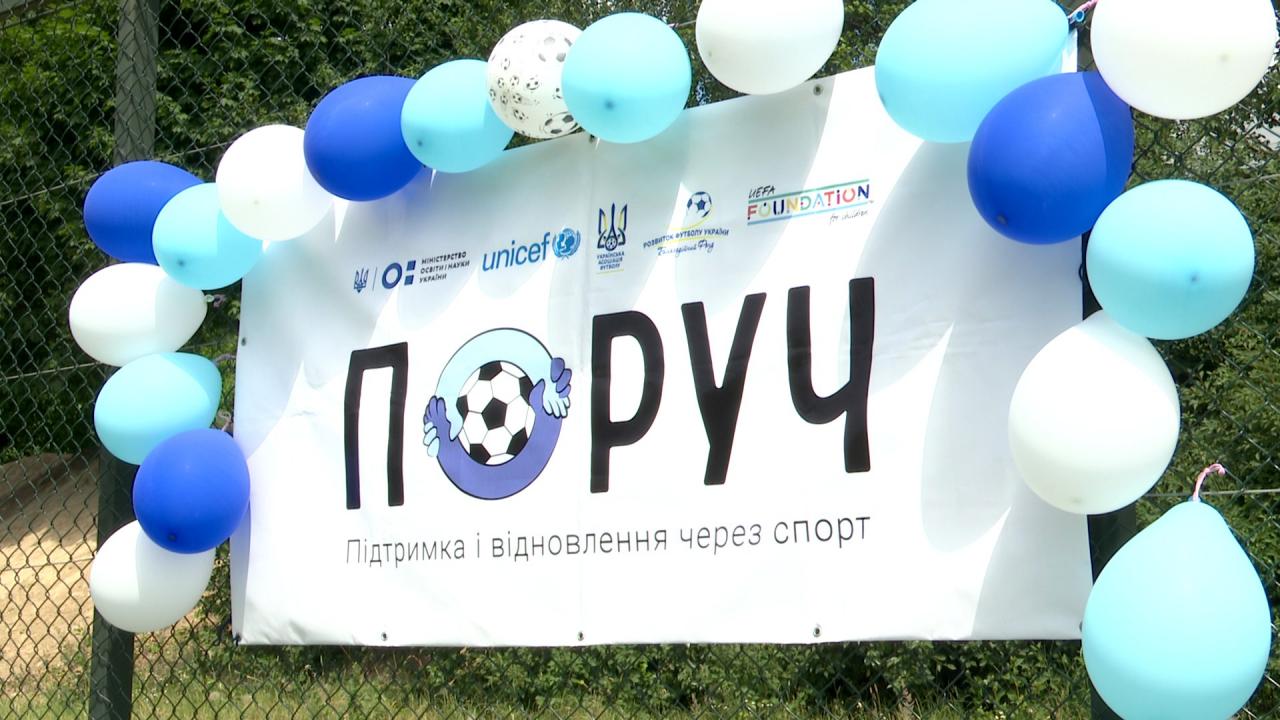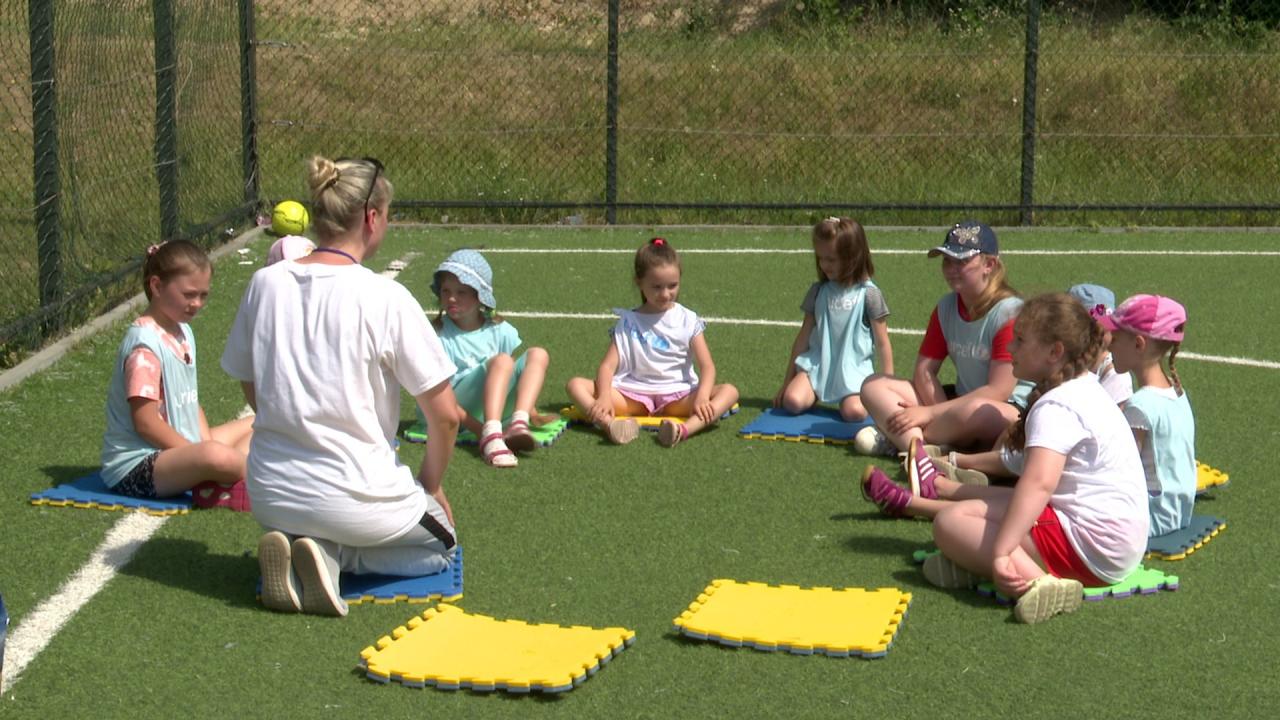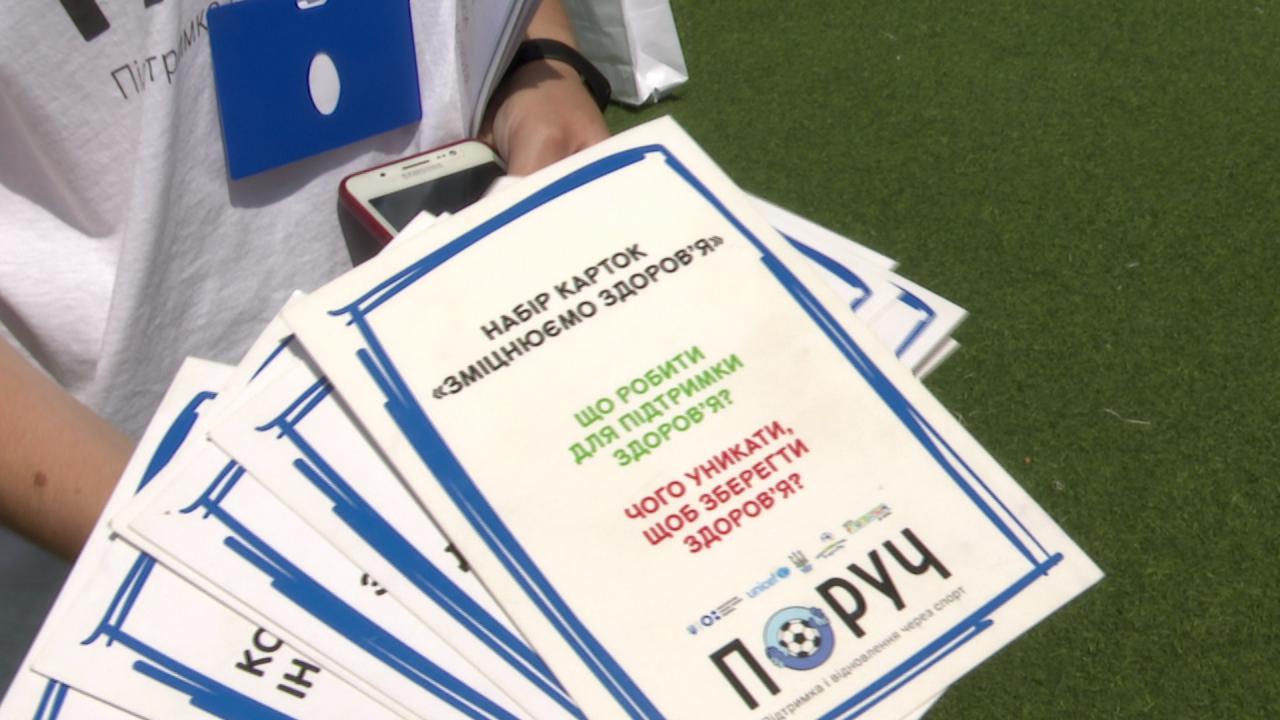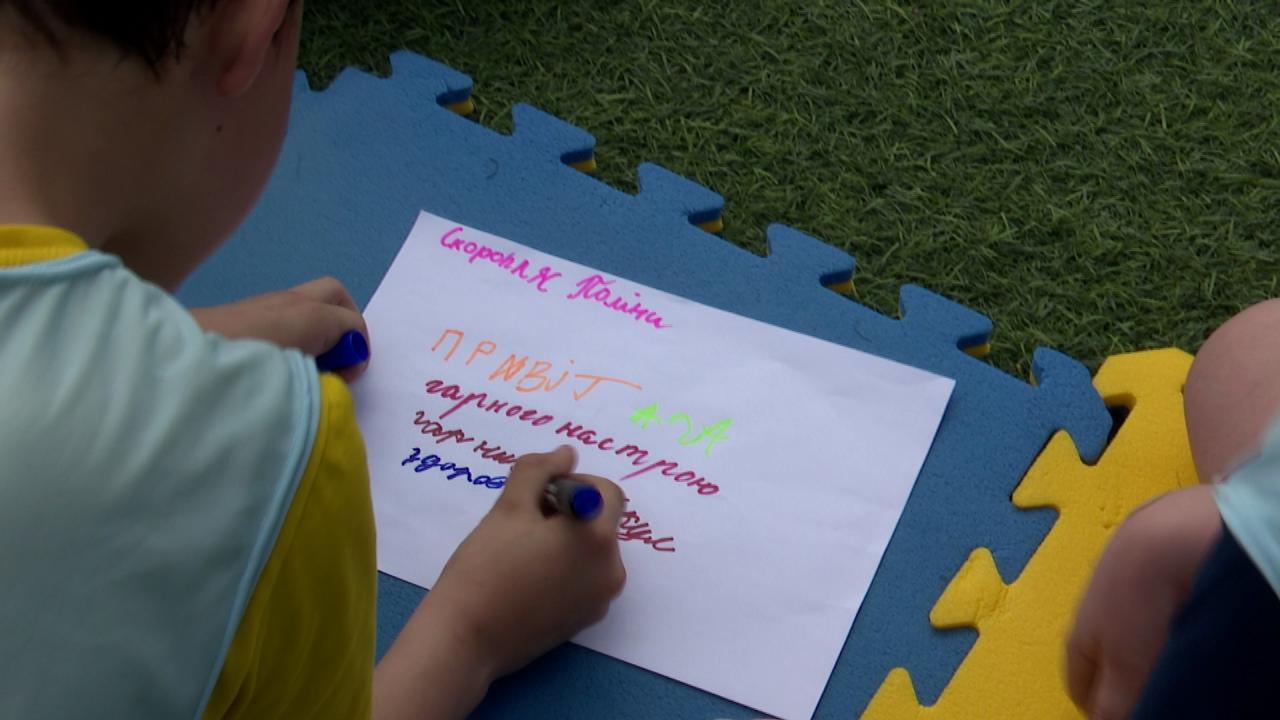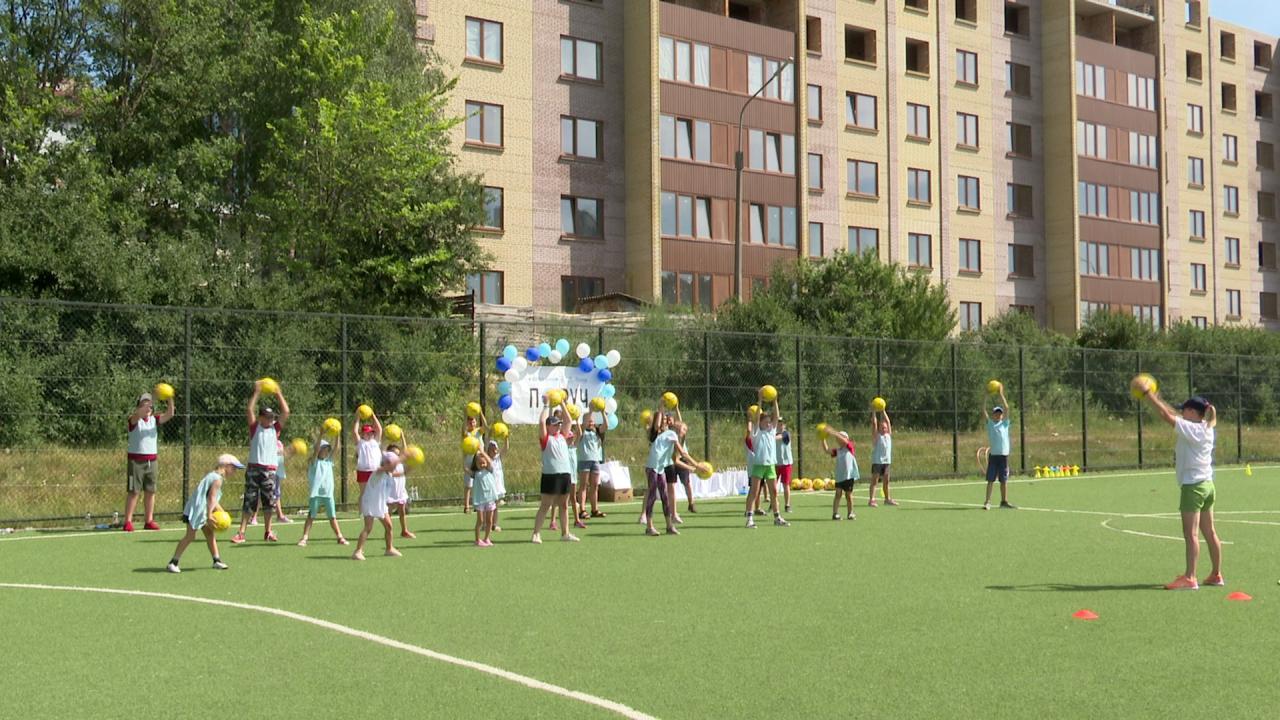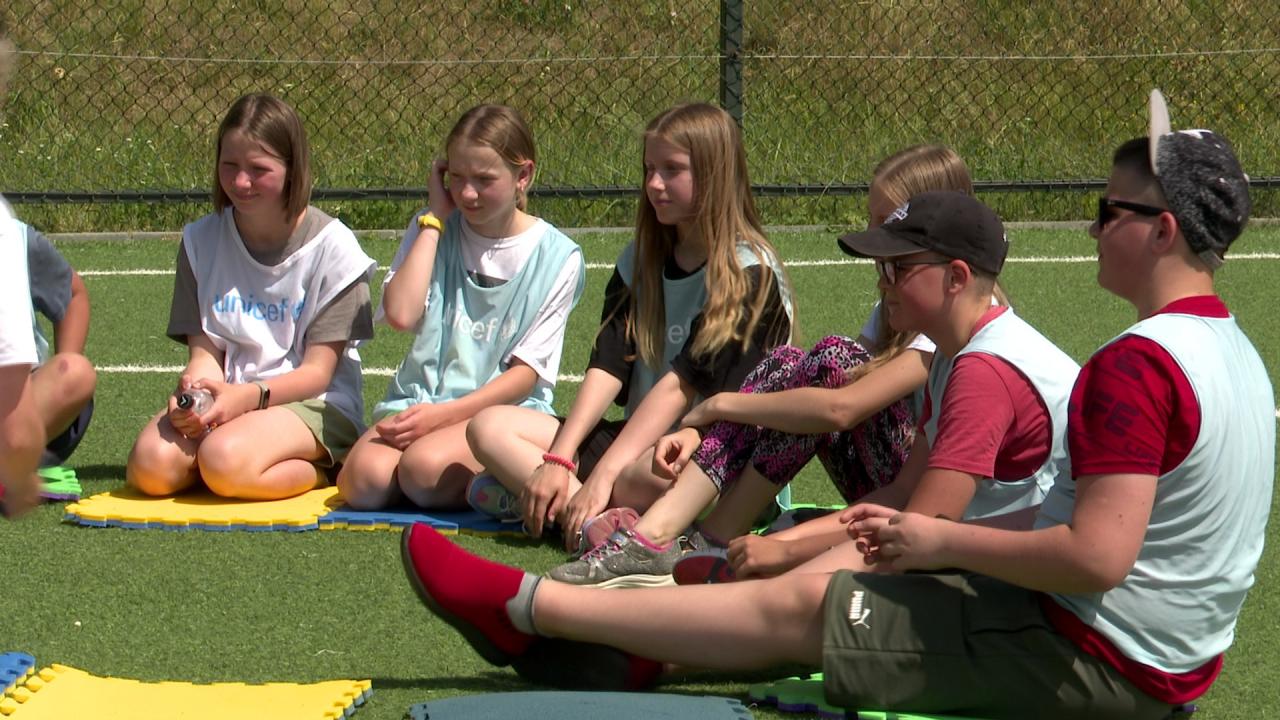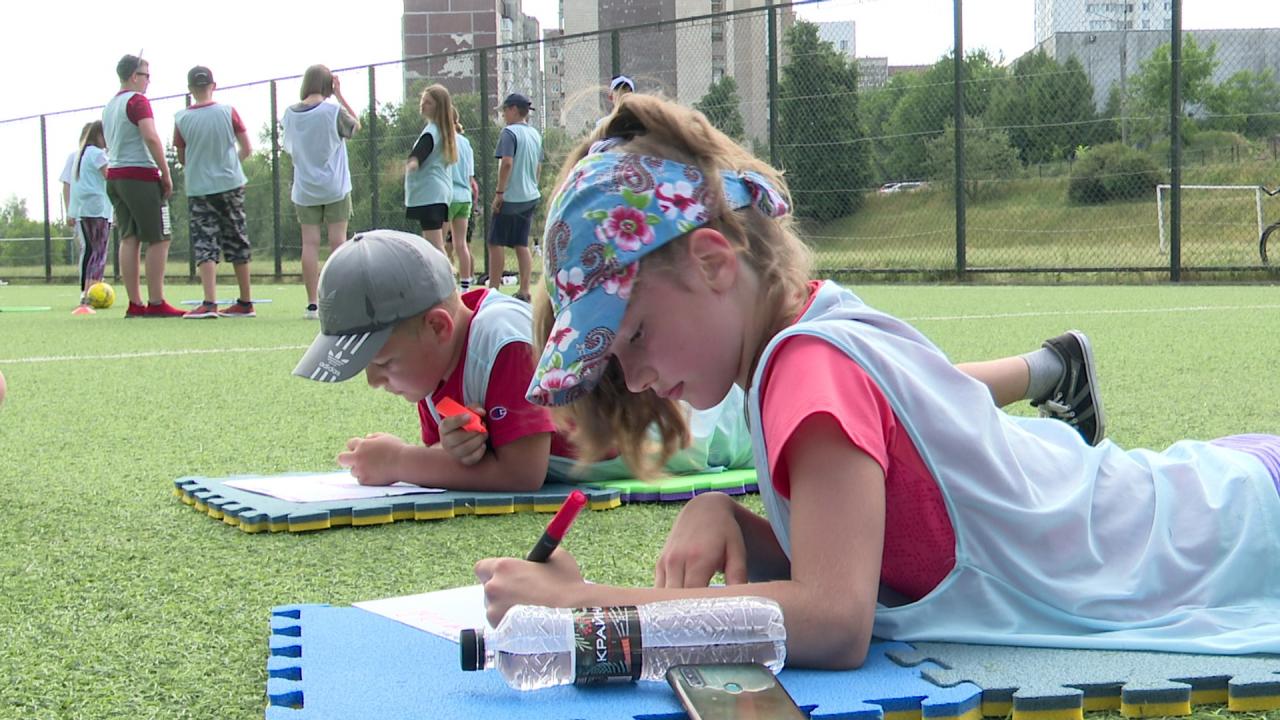
What is the problem?
War's impact on children
Wars of the past century and today are a severe test for children's physical and mental health. Between 1985 and 1996, UNICEF says, 2 million children were killed in the war, 4 to 5 million were disabled or seriously injured, 12 million were displaced or homeless, and another million were lost or separated from their parents.
It sounds scary, but children continue to be included in the statistics of brutal and cynical war even in the 21st century. As a result of russia's armed aggression, more than 1.5 million Ukrainian children became refugees as of March 2022, and about 4 million became displaced.
"I believe that almost every child living in Ukraine suffers as a result of the war even when they hear air raid sirens," says Volodymyr Yasiuchenia, who joined the project in the Ternopil region as a project manager when the full-scale invasion began.
Experts say that losing home, loved ones, separation from parents, and other traumatic events have a long-term impact on the child's growth, emotional state, and the stage of their personality development. That is why paying attention to children and providing them with psychological help at this time is essential.
"The biggest problem is closed-off children, and our task is to make them open up and communicate with other children of their age, younger or older," says Mr. Volodymyr.
12-year-old Sofia from Ternopil shared how the war affected her life: "It's a bit difficult for me. My father, brother, and uncle are now in the war [in the army, ed.]. But we talk, and everything is fine at the moment," says the girl.
Some children, such as Sofia, can openly share their emotions, and their stories related to the war with their closest relatives or friends, while others, on the contrary, go through them independently and close themselves off from the outside world.
What is the solution?
Psychological support
The Ministry of Education and Science of Ukraine and the United Nations Children's Fund (UNICEF) decided to restore the mental state of children from the families of IDPs, military, low-income families, and families with many children who suffered as a result of the war. Their cooperation created the PORUCH social and psychological support project. This initiative includes a working group of psychological support, art therapy, master classes, healthy nutrition, and sports meetings for children. Psychologists say all these activities contribute to the psychological recovery of children after a traumatic experience and overcoming various fears:
"The project allows the child to understand themselves and their experiences, and that what they feel is normal," says psychologist Lilia Halianta, who works on the project.
Eight first Ukrainian regions joined the project: Khmelnytskyi, Rivne, Volyn, Lviv, Ternopil, Ivano-Frankivsk, Chernivtsi, and Zakarpattia. The project started working immediately in three districts of Ternopil, Kremenets, and Chortkiv in the Ternopil region.
Almost 90,000 internally displaced persons were registered in the Ternopil region, and it was there that we decided to learn more about the project's work.
The PORUCH specialists pay attention to children from 6 to 16 years old.
"Children want to speak; they want understanding within the project and those around them. First, they want the family to understand them," says Volodymyr Yasiuchenia. "They want to speak their mind freely and to be heard. It's the first thing we try to help with because my task is to understand and support the child at that moment if they need it."
The project mainly focuses on children who became forcibly displaced and experienced tragic events. However, the project has involved relatively safe small Ukrainians from the first days. The specialists of the psychological initiative say both experience similar emotional states due to the war, which include anxiety, fear, depression, etc.
"We had a case where the sound of a siren during a class affected the psychological state of one of the project participants. The child felt sick; he was nauseous and had a headache. This child wasn't IDP; the boy was from Ternopil," he recalls Volodymyr Yasiuchenia.
How does it work?
Before implementing the project in Ukrainian cities, they first launched the coordination center. It was the preparatory stage; as part of it, the project was looking for professional trainers who would be able to conduct developmental classes with children. Then, the selected specialists underwent online training for several weeks. Each received a certificate of successful completion of the curriculum to apply the acquired knowledge in practice during the next five months.
Work with the PORUCH participants in the Ternopil district began symbolically on the International Day of Children's Protection, celebrated on June 1. The primary location of the project is the sports field of the specialized school No. 29 with in-depth study of foreign languages. Thirty children are involved in one lesson. The specialists work with them in three sectors: sports, psychological and medical. Volodymyr Yasiuchenia, the project administrator in the Ternopil district, explains to us why they chose these areas and how they help children:
"Sports activities are necessary for children to reboot psychologically. They will be more likely to communicate after playing with their peers, and physical activity reduces anxiety and improves their emotional state. With the help of psychological exercises, project participants share their experiences with others. And they get all the information about a healthy lifestyle at the Health and Safety location."
During classes, specialists try to consider children's different ages. After all, tasks and exercises may be suitable for some and not for others precisely because of different ages. Therefore, more mobile games and drawing can be interesting for smaller children. For older kids, there are logical or creative tasks. Thus, participants are usually divided into age groups of 6-9 years, 10-13, and 14-16 years.
In different zones, children work with a psychologist, play mobile games with a soccer ball, and at the end, medical volunteers tell them how to take care of their health. In each of these locations, children practice for 20 minutes. For example, they demonstrate what to do in case of injuries. Volodymyr Yasiuchenia explains:
"There is a game called Immunity. On the playground, we build a tower of sports hoops, representing the human body according to the game's rules. If the children hit it with a ball, it means that viruses attack it. During the team practice, the game participants try to protect the structure; to do this, they tell and study various components of a healthy lifestyle. It includes a daily routine, proper nutrition, physical activity, etc. If they don't know this, then they will not be able to protect the tower, that is, the human body." Thus, playfully, children learn to support themselves and others, and sports games develop team spirit and social skills. After the class, the young participants receive gifts from the organizers and partners.
Lilia Halianta has been working as a psychologist for about 20 years. She spent the last years with children at school. During the full-scale war, Lilia joined the PORUCH project. The specialist says that children are often more anxious if adults anxiously endure this war. Psychologists can see children's emotions in their drawings during art therapy. The specialist calls this one of the effective methods in working with children, which allows you to understand their psychological state, desires, and emotions:
"A child cannot always speak about their traumatic event out loud. They may be afraid and worried or think they will be misunderstood when they see or know something more than someone else. And during art therapy, their drawing does it for them more easily. As a psychologist, I can understand the child's psychological state through the colors and what the child has drawn."
If the children are upset because of some past events, Lilia goes through the Future Projection exercise with them. The psychologist is convinced that this task helps focus the child's attention on something good, to understand what they want and how they see it. If negative emotions aren't worked through, they can lead to more profound trauma and affect the child's adult life.
"I always say, if you are angry about something, then go and exercise. You don't need to keep these negative emotions inside. You need to release them. This recommendation applies to both children and adults," the specialist advises.
Does it work?
In the Ternopil district, about 500 children have already attended social and psychological classes. Children like these classes, in particular, 8-year-old Mykhailo from Brovary shared his impressions with us immediately after the class: "I really liked today; everything was cool and fun." The boy loves to play football, and it was here in the sports sector that he learned how to make passes and other football tricks.
"We are not interested only in handling the ball or the accuracy of the goals. The children need to feel in the team what it is like to support each other or when the coach supports you, maybe, even get positive feedback about a good job in the game. This is also important," says Volodymyr Yasiuchenia.
Before, meetings with the participants of the psychological initiative took place twice a week at the sports ground. Many people are willing to join the project, so they decided to increase the number of classes to 3-4 per week. At least 1,200 participants should be involved in the 40 meetings planned for this project during the summer.
Natalia from Ternopil, whose eight-year-old son willingly attends classes, is sure that children need them. Despite their young age, children also understand what war is, feel its consequences, and parents need to work with this:
"Since the war began, it seems that the children did not know what was happening in the country. Now they hear that we, the parents, are talking about it and begin to understand more. I noticed this in my son because he became more afraid," says Ms. Natalia. "But I see they are talking about it with specialists here, and I am delighted."
As part of the project, the specialists also work with parents: they provide recommendations and examples of games or exercises they can use, for instance, in the shelter.
"If these are small children, then these are games and exercises that they can use at home. For parents, it relieves them from tense and stressful situations they have experienced. There are certain recommendations that we provide, and there are websites; for young children, there is the viewing of various cartoons, where with the help of games and visualization, they can understand more. But everything depends not on age, but on the child's characteristics," psychologist Lilia explains.
Oksana Voronkevych, Ph.D. of Psychology, a Developmental Psychology and Counseling professor at the Volodymyr Hnatiuk Ternopil National Pedagogical University, notes the usefulness and effectiveness of the psychological project. The woman has been interested in and studying child and adolescent psychotherapy for more than a year. She says that group work with a psychologist is crucial for initiative participants and can sometimes be more effective than individual work.
"At a class with a psychologist, there is a certain group dynamic, and each child has the opportunity to see how others open up. It is then easier for them to open themselves up and trust. Also, the group reflects, and the peers give feedback. It is valuable that they understand they wouldn't have succeeded independently," says Ms. Oksana.
Even more helpful solutions!
Today, the initiative is gradually expanding—at least three new regions should soon join it. In addition, psychological support for children affected by the war is provided not only offline.
The PORUCH online platform also operates within the project. Professional psychologists help and support educators, teenagers, and parents. For example, teachers can get advice from experts on how to support themselves and their students. Parents discuss how to manage emotions during difficult times, how to help loved ones, etc. Teenagers, in turn, want to share their experiences about the events around them and in the country and talk with their peers.
"Children in adolescence are more emotional. It is important for them to feel equal communication with someone ready to listen to them, not as an adult, but as a friend. Therefore, I always tell them that it is important for me to hear your opinion, even if it is not the same as mine. I will accept it as it is," psychologist Lilia Halianta adds.
The group meetings take place twice a week on Zoom. Each group has up to ten participants and a leading psychologist.
How to join the project?
"Professional psychologists with the skills to help people traumatized by the war, and those ready to undergo training and take on the work that is extremely important at this time, are joining the PORUCH project," the project's website states.
About a hundred specialists from various Ukrainian regions completed the project training course. Currently, the recruitment of psychologists, physical education teachers, and medical workers for this initiative is suspended due to a sufficient number of involved specialists. However, you can leave an application for participation on the project website and join the specialists' reserve. When the opportunity arises, go through training and join this or similar initiatives.
You can become a PORUCH psychologist if you have higher psychological education and experience working with children and parents. It will be helpful if you have worked with people who have survived hostilities, loss, or trauma. Similar requirements apply to medical and sports workers.
How can children join the psychological initiative?
For your child to become a participant in the project, you should look for and contact the initiative administrator assigned to your region for all the necessary information. You will be able to find out if there are still free places, or agree on the day when you will come to the first lesson. Also, parents should be prepared that they will need to fill out a document where they consent to their child's participation in the project and photo and video recording.
How to repeat this project?
You can implement the PORUCH project in any other village or city in any region where there are currently no active hostilities. For the initiative to work, it is necessary to fulfill two main requirements:
- The first is to have a sports ground, where socio-psychological classes for children will take place.
- The project's second component is to have a shelter near your location in the event of an airstrike. After all, in the realities of war, the trainers immediately stop the classes and follow the participants to the nearest bomb shelter during a missile attack threat.
"When we finish the work, the children in our location say their wishes to each other," psychologist Lilia notes. "And you know, the only wish of the children of IDPs and the little residents of Ternopil is peace and serenity for all of us—we were already working when the air raid alarm started and went to the shelter. These moments are very emotional and tense."
Also, some people have undergone special training and are ready to join your initiative, Volodymyr Yasiuchenia says. Therefore, all you have to do is contact the PORUCH project coordinators in the area where you are located.
"It is necessary because if the children had education, it was online. They did not communicate. They did not see each other; if they did, it was only through cameras in a remote format. Here, when they meet, they are happy and meet new acquaintances. It's always nice to watch them when they leave after the project, having received gifts and talking with smiles. These positive emotions give us the energy to work further," Volodymyr Yasiuchenia sums up.
The article was published thanks to the support of the FOJO media institute.

Ukrainian vegan cuisine: how volunteers in Uzhhorod organize healthy food for displaced people

"The most stress-resistant business in the world": how Ukrainian companies unite against the enemy and for Ukraine




